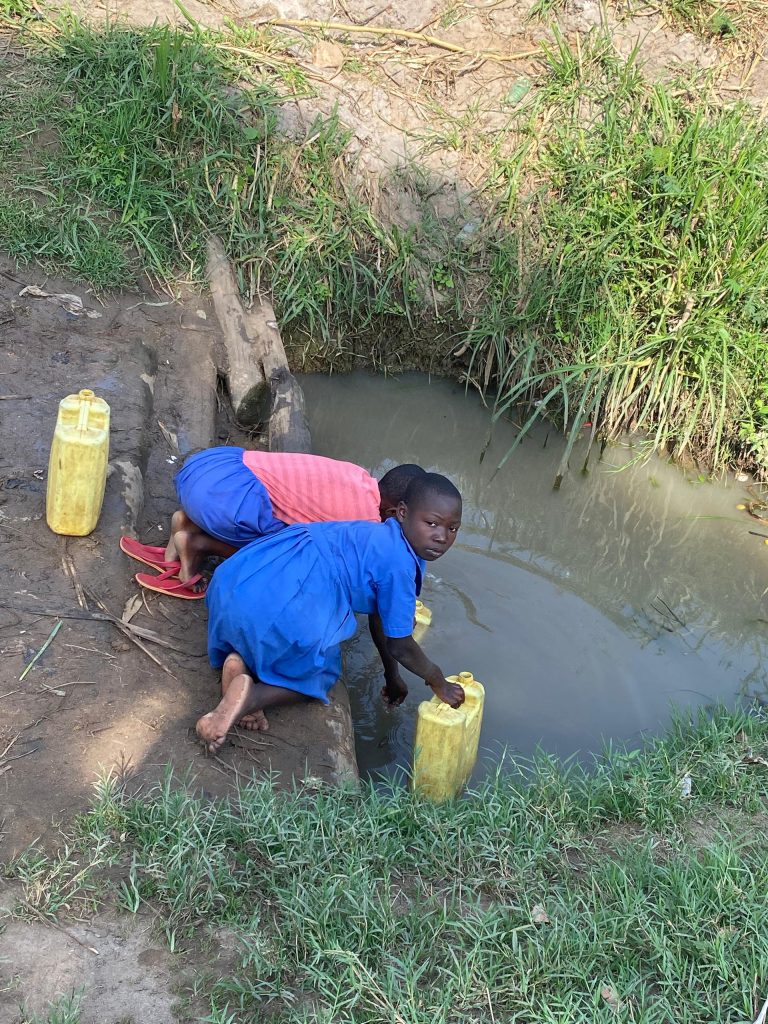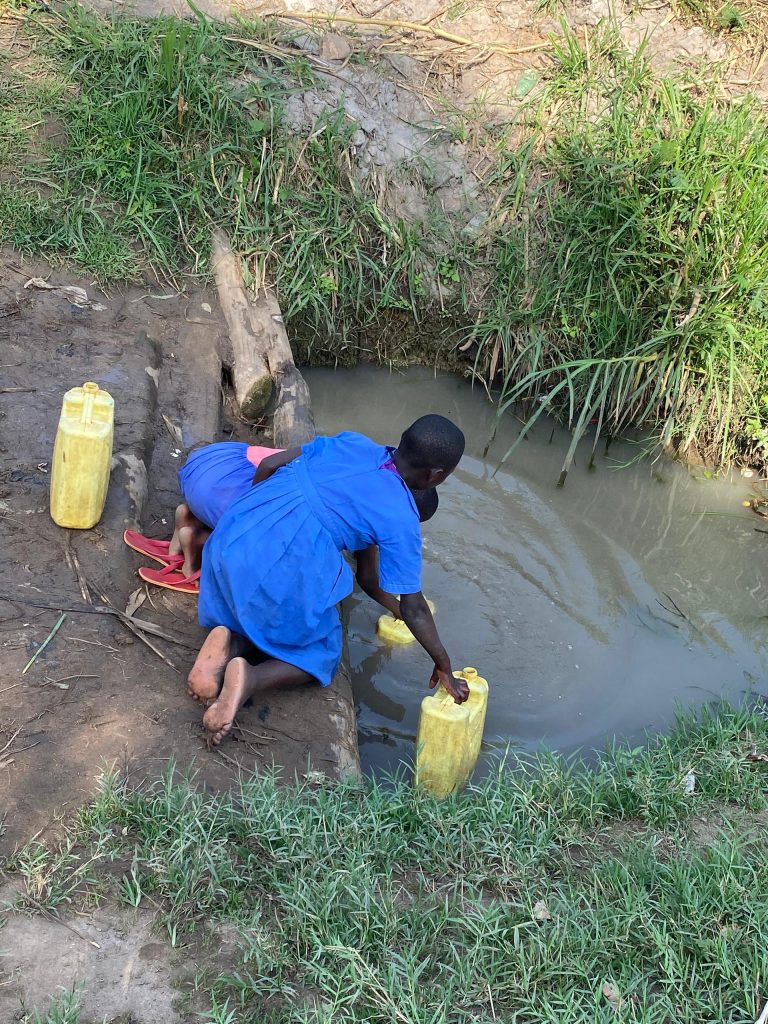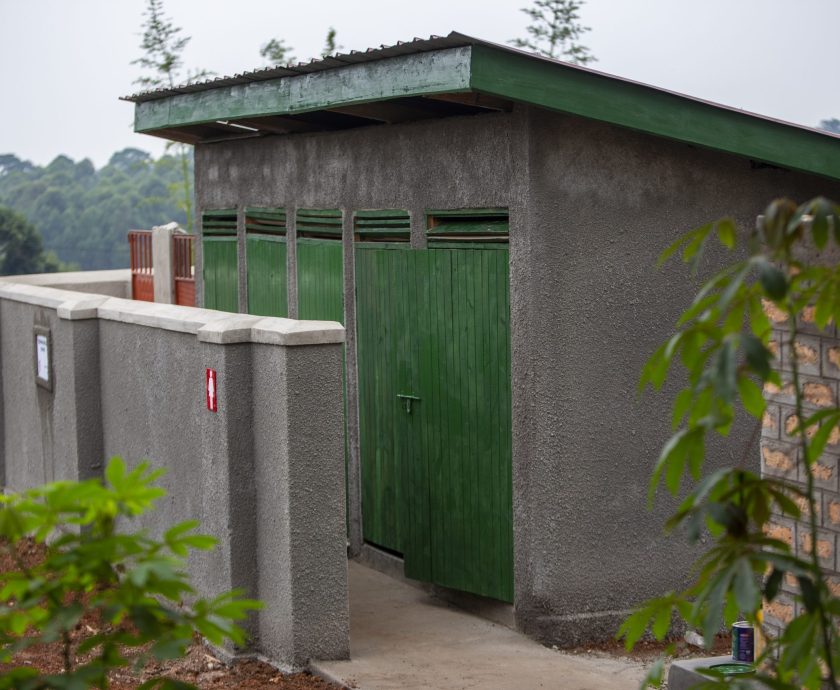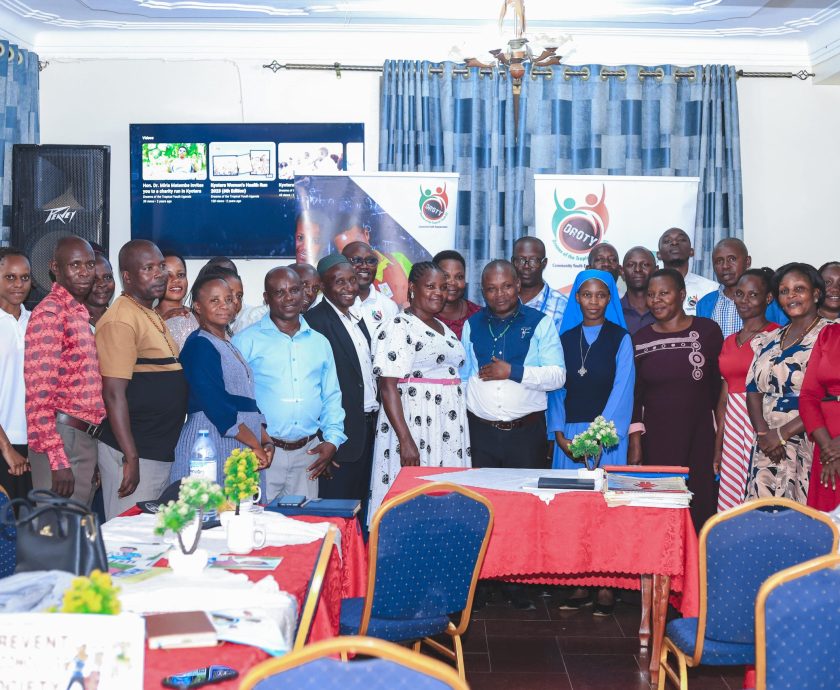

In Kyango village, Kyotera, Uganda, access to safe and clean water remains a critical challenge that profoundly impacts the daily lives of residents, particularly girls and young people. With limited functional water points, Kyotera district has 1,101 domestic water points, 128 of which have been non-functional for over five years, and many people are forced to rely on distant and often contaminated sources like ponds or open wells. This scarcity disproportionately burdens girls, who are typically tasked with fetching water, compelling them to walk long distances, sometimes up to three hours, to collect just a few litres. These journeys not only consume valuable time that could be spent on education or other productive activities but also expose them to risks such as physical strain and unsafe encounters, perpetuating a cycle of hardship and missed opportunities.
The reliance on unclean water sources in Kyango village exacerbates health challenges, as waterborne diseases like diarrhea and typhoid remain prevalent. Over 4,500 children in Uganda die annually from diarrheal diseases linked to unsafe water, and in rural areas like Kyotera, 88% of such cases are preventable with improved water access and sanitation. Girls, who often bear the responsibility of caregiving when family members fall ill, face additional disruptions to their education and menstrual health management. The physical toll of carrying heavy water containers, often weighing up to 40 pounds, further compounds their struggles, limiting their ability to engage in school or income-generating activities and reinforcing gender inequalities in the community.
Efforts to address this crisis are underway, but significant gaps remain. In Kyotera, only two piped schemes exist, and access rates vary widely, from 29% in Kyebe Sub-County to 95% in Kasaali Sub-County. Community-driven solutions, such as training local committees to manage water points, offer hope for sustainable change, but the scale of the problem demands greater investment and coordination. By prioritizing safe water access, we can alleviate the burden on girls and young people in Kyango, empowering them to pursue education, health, and a brighter future.
Will you join us to realize this ambition?



